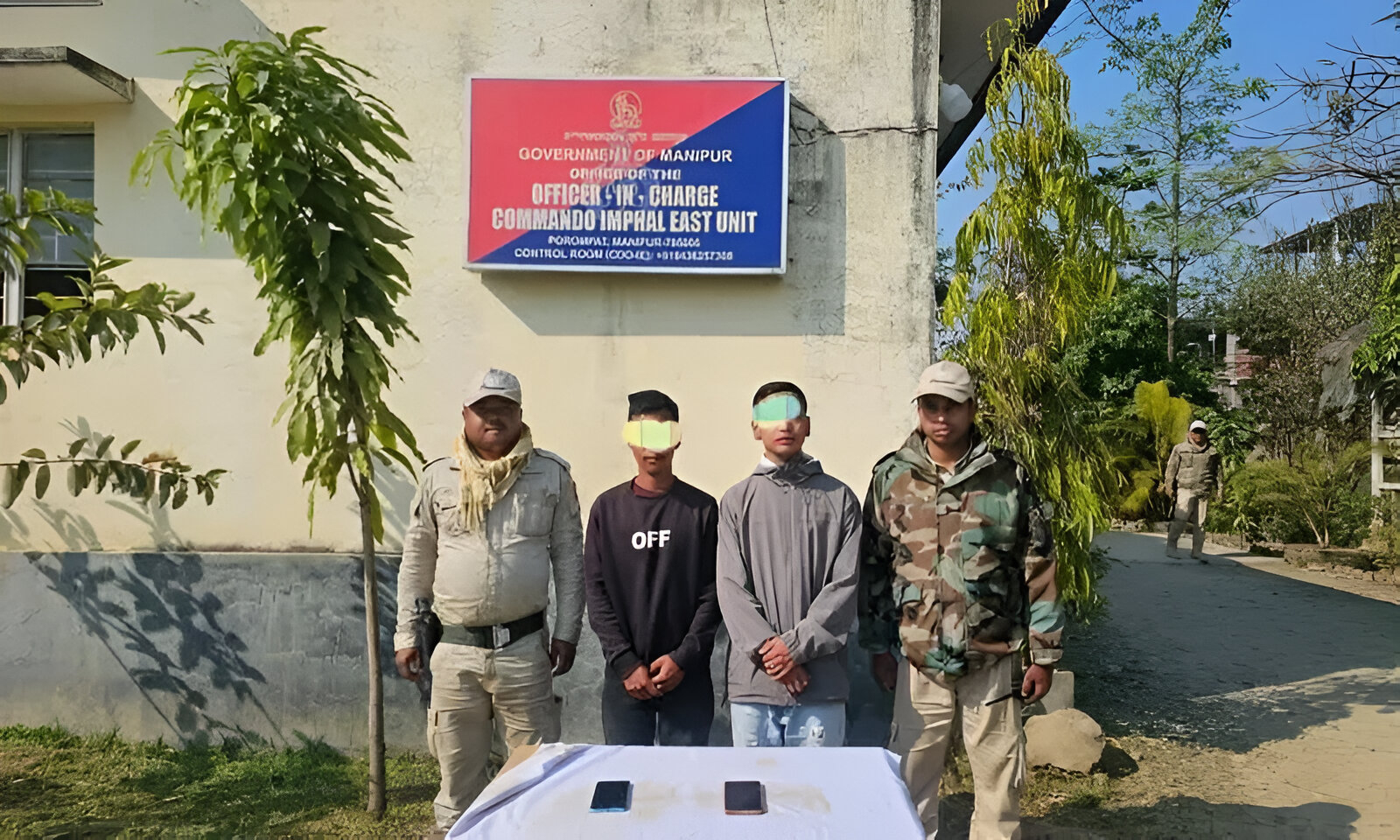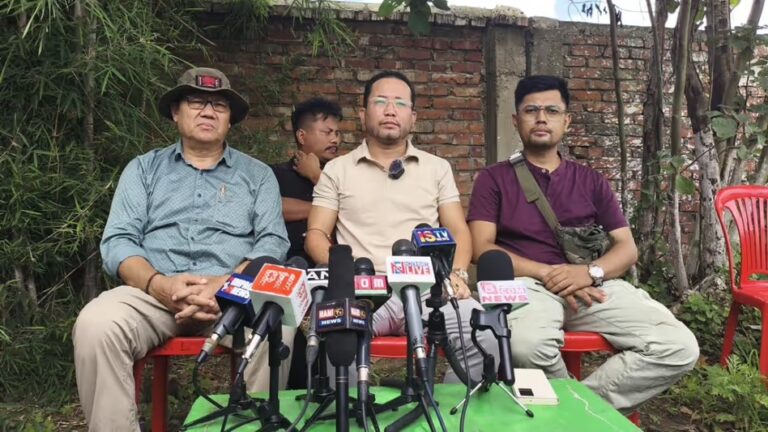Manipur Police Arrest 12 Militants in Different Operations: A Bold Step Towards Regional Stability
Introduction
Have you ever wondered how law enforcement in conflict-prone regions keeps communities safe? In Manipur, a state known for its cultural richness as well as its security challenges, the police have once again made headlines by arresting 12 militants in a series of well-coordinated operations. This isn’t just about apprehending criminals—it’s about sending a clear message that insurgent activities will not be tolerated, and that the safety of citizens remains paramount.
In this article, we’ll explore the details of these operations, the background behind the security challenges in Manipur, and the broader implications for the region. We’ll break down the story into digestible parts, taking you through the context, the operations, and what the future might hold. So, let’s dive in and uncover how these arrests are shaping a safer tomorrow for Manipur.
Understanding Manipur’s Security Landscape
Manipur is not just another state in India—it’s a region with a vibrant cultural tapestry interwoven with historical complexities and ongoing security concerns. Over the years, various militant groups have taken root in the state, driven by long-standing grievances, demands for autonomy, or even political ideologies. These groups have periodically disrupted peace and ignited fears among local communities.
The recent arrest of 12 militants marks another chapter in Manipur’s ongoing battle against insurgency. The state police, known for their unwavering commitment, have executed these operations to disrupt networks that pose threats to local stability. For many residents, these operations are a sign of hope—a step towards reclaiming their daily lives from the shadow of militancy.
Details of the Arrest Operations
Picture this: a crisp morning in Manipur as law enforcement agencies mobilize swiftly across different parts of the state. In multiple operations conducted over a short span, police teams tracked down and arrested 12 militants linked to various insurgent activities. These operations were not random acts of enforcement; they were meticulously planned missions aimed at dismantling criminal networks and curbing the influence of militant elements.
The arrested militants are believed to have been involved in a range of illegal activities—from arms smuggling to orchestrating violent protests. Each operation was executed with precision, ensuring that the arrests would have a ripple effect on the broader militant network. By removing these key players, the police have not only disrupted immediate threats but have also sent a strong warning to others who might entertain the idea of joining such groups.
The Role of Intelligence and Coordination
One of the most remarkable aspects of these operations is the role played by intelligence gathering and inter-agency coordination. In today’s world, where information is power, the Manipur police leveraged both modern technology and traditional on-ground intelligence to locate these militants.
Think of it as piecing together a complex jigsaw puzzle—each piece of intelligence, every tip from local informants, and insights from surveillance contributed to a larger picture that allowed law enforcement to strike effectively. This collaborative approach between different branches of the security forces has been a game-changer in the fight against militancy in Manipur.
Why These Arrests Matter
You might ask, “Why is arresting 12 militants such a big deal?” Well, let’s put it into perspective. In regions like Manipur, militant groups often operate in tight-knit cells. Removing even a handful of key members can disrupt the entire network, making it difficult for the group to carry out further operations. These arrests are akin to pulling a crucial thread from a complex fabric—the entire structure begins to unravel.
Moreover, these actions serve as a deterrent. When militant groups see that the police are equipped, coordinated, and relentless, it discourages potential recruits and undermines the morale of the insurgents. This is not just about maintaining law and order today; it’s about building a foundation for a more secure and stable tomorrow.
The Impact on Local Communities
Let’s step into the shoes of a local resident in Manipur. Imagine living in a community where the threat of insurgency looms large. Every noise, every distant explosion, sends waves of anxiety through your neighborhood. The recent operations by the police are a breath of fresh air for many. They offer reassurance that the state is not only aware of the dangers but is actively working to neutralize them.
For the locals, these operations mean safer roads, a decrease in violent incidents, and a renewed sense of normalcy. It’s like turning on a light in a dark room—the sense of security spreads, and people begin to feel that life can return to normal. However, the community also remains aware that this is just one step in a long journey toward complete peace and stability.
Government and Police Response: A United Front
The arrest of these militants is not an isolated incident; it reflects a broader strategy adopted by the Manipur government and its police force. The authorities have long been committed to a dual approach: robust law enforcement and proactive community engagement.
In press briefings following the operations, senior police officials highlighted the importance of these arrests as part of a comprehensive plan to combat militancy. They emphasized that while these operations are crucial, they are only one piece of a larger puzzle that includes intelligence gathering, socio-economic development, and political dialogue.
Government officials have reiterated their commitment to addressing the root causes of militancy. By focusing on education, employment, and social integration, the state aims to diminish the allure of insurgent ideologies. This holistic approach ensures that while security measures are in place, long-term solutions are also being pursued.
Security Measures in Northeast India: A Broader Perspective
Manipur’s security challenges are not unique to the state. The entire Northeast region of India has grappled with insurgency and militancy for decades. However, recent years have seen significant improvements in security operations, thanks in part to technological advancements and better coordination among various security agencies.
In many ways, the operations in Manipur serve as a model for other states in the region. They demonstrate that with the right mix of intelligence, manpower, and modern equipment, it is possible to tackle even the most deeply entrenched militant networks. This success story can inspire other parts of Northeast India to adopt similar strategies and work towards a more peaceful future.
Analyzing the Militant Networks: What Drives Insurgency?
To understand the significance of these arrests, it’s important to delve into the dynamics that fuel insurgency in Manipur. Militants in the region often emerge from complex socio-political conditions. Historical grievances, feelings of marginalization, and economic disparities create a fertile ground for extremist ideologies to take root.
Many militants are driven by a sense of injustice—a belief that the state has neglected their community’s needs or failed to provide adequate opportunities. In such cases, militancy becomes a way to assert their identity and demand change. While these motivations might have a kernel of truth, the methods employed by these groups often lead to violence and instability.
By targeting the leadership and operational cells of these networks, the police are not only curbing immediate threats but also challenging the underlying narratives that justify insurgency. It’s a bit like cutting off the head of a snake—the immediate danger might diminish, but the venom (or in this case, the ideology) must also be neutralized through broader socio-economic reforms.
Challenges in Countering Insurgency
Despite these successful arrests, it’s important to recognize that countering insurgency is an ongoing battle. Militancy in Manipur has deep roots, and dismantling these networks requires sustained effort over a long period. Every arrest is a victory, but it’s also a reminder of the persistent challenges that lie ahead.
One of the major hurdles is ensuring that the arrest operations do not alienate the local communities. In regions like Manipur, where history and culture are deeply intertwined with daily life, heavy-handed approaches can sometimes backfire. The key is to strike a balance—using firm measures against militants while maintaining an inclusive approach that respects the rights and sentiments of the local populace.
The Role of Community Engagement in Long-Term Peace
Imagine trying to rebuild a community that has been divided by years of conflict. That’s the challenge faced by many areas in Manipur. While arresting militants is a critical step, lasting peace can only be achieved when local communities feel involved in the process.
Community engagement initiatives play a crucial role in this regard. These might include town hall meetings, dialogue sessions between police and community leaders, and programs aimed at integrating marginalized groups into mainstream society. When residents see that their concerns are being addressed and that they have a stake in the process, trust is rebuilt, and the cycle of violence begins to break.
It’s like tending to a garden—while you may remove the weeds, you also need to nourish the soil to ensure that healthy plants can grow. In the context of Manipur, nurturing community relations is essential for long-term stability.
Political Implications and the Future of Security Policies
The arrest of militants also carries significant political implications. For the state government, these operations are a tangible demonstration of its commitment to restoring order and ensuring public safety. Politicians often emphasize such successes during election campaigns, highlighting their efforts to safeguard the interests of the people.
However, there is also a broader lesson here. Security cannot be viewed in isolation from political and social issues. The root causes of militancy—such as economic disparities, political disenfranchisement, and social exclusion—must be addressed alongside law enforcement measures. Only by adopting a comprehensive strategy that integrates security, development, and political reforms can the cycle of violence be broken for good.
Economic Factors and Their Role in Insurgency
Another important aspect of this issue is the economic dimension. In many parts of Manipur, lack of job opportunities and economic development can push disaffected youth towards militant groups. These groups often promise a sense of purpose, financial incentives, or even social status that they cannot find in mainstream society.
The arrests of militants, therefore, must be complemented by efforts to boost local economies. When people have access to education, employment, and a decent standard of living, the allure of extremist groups diminishes. This dual strategy of strict law enforcement coupled with robust economic development initiatives is essential to building a resilient society where every citizen can thrive.
Learning from Past Experiences
History teaches us that the fight against militancy is rarely a linear path. There are periods of progress followed by setbacks, and every operation is part of a larger narrative. Manipur’s experience with insurgency has been a long and challenging journey, with numerous operations over the years gradually weakening militant networks.
Each successful arrest, like the recent capture of 12 militants, builds on previous efforts and contributes to a cumulative effect. It’s a reminder that change is possible, even in the face of deeply entrenched challenges. The lessons learned from these operations can be invaluable in shaping future security policies—not just in Manipur, but across other regions facing similar issues.
The Importance of Transparency and Accountability
For any security operation to be truly successful, transparency and accountability are paramount. The local community and the broader public need to see that these operations are conducted fairly and that the rights of individuals are respected. Transparent communication from the police and government helps build trust and ensures that the public remains supportive of the measures taken.
In Manipur, authorities have been quick to provide details about the operations, emphasizing that every step was taken with due regard for legal procedures and human rights. This open approach not only reinforces the legitimacy of the actions taken but also paves the way for more community cooperation in the future.
A Vision for a Peaceful Future in Manipur
Looking ahead, the arrests of these 12 militants should be viewed as a stepping stone towards a broader vision of peace and prosperity in Manipur. The state’s journey towards stability is far from over, but each operation, each intelligence breakthrough, and each community engagement initiative brings them closer to a future where violence and insurgency are relics of the past.
Imagine a Manipur where local markets bustle with activity, where children attend schools without fear, and where every citizen feels secure in their daily lives. That is the vision driving these operations—a future where law and order prevail, and where every effort is made to bridge the gap between security and community development.
Conclusion
In wrapping up, the arrest of 12 militants in different operations across Manipur is more than just a news headline—it’s a testament to the resilience of the state’s security forces and the unwavering hope for a safer tomorrow. These arrests have not only disrupted militant networks but have also reinforced the message that peace and stability are achievable, even in regions marked by long-standing challenges.
As we reflect on these operations, it becomes clear that the fight against insurgency is multifaceted. It involves a delicate balance between robust law enforcement, community engagement, and addressing the socio-economic factors that fuel militancy. The journey is long and fraught with obstacles, but every step taken, every militant apprehended, is a victory for the people of Manipur.
The hope is that these actions will inspire further reforms, encourage open dialogue between the government and local communities, and ultimately pave the way for a Manipur where every citizen can live without fear. As we look to the future, let us remember that true security is built on trust, cooperation, and a shared commitment to the well-being of all.
FAQs
- What was the significance of arresting 12 militants in Manipur?
The arrests are significant because they disrupt the operational capabilities of militant networks, send a strong deterrent message, and contribute to restoring peace and security in a region that has long grappled with insurgency. - How did the Manipur police coordinate these operations?
The police used a combination of modern intelligence techniques, technology, and on-ground human intelligence. Inter-agency coordination was key in planning and executing the operations efficiently and effectively. - How do these arrests impact local communities?
The operations provide a sense of relief and reassurance for local residents, reduce the immediate threat of insurgency, and pave the way for a more stable environment where community development can flourish. - What broader strategies are being implemented alongside these arrests to combat militancy?
Beyond arrests, the government is focusing on community engagement, economic development, transparency in law enforcement, and addressing socio-political grievances that fuel insurgency, all of which form a comprehensive strategy against militancy. - What future steps are planned to ensure lasting peace in Manipur?
Future steps include enhancing dialogue between the state and local communities, investing in economic and social development, using integrated security measures, and ensuring transparency and accountability in all operations to build lasting trust and security.




